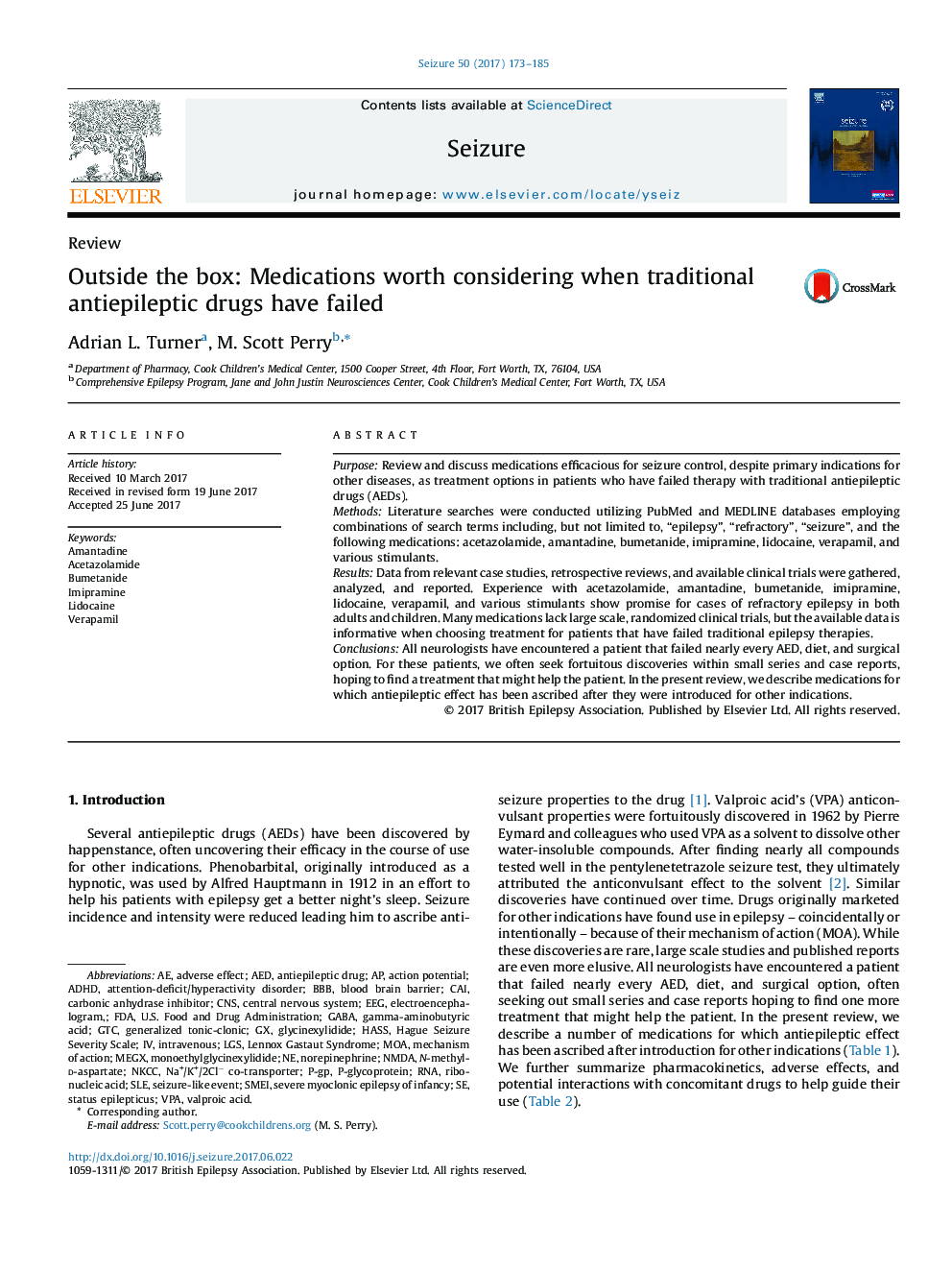| Article ID | Journal | Published Year | Pages | File Type |
|---|---|---|---|---|
| 4935276 | Seizure | 2017 | 13 Pages |
â¢Medications indicated for other disorders have efficacy as epilepsy treatment.â¢Limited case series, case studies, and small trials guide their use.â¢Imipramine and amantadine have efficacy for refractory absence and atonic seizures.â¢Lidocaine has shown efficacy as treatment for refractory neonatal seizures.â¢Bumetanide, verapamil, and stimulants have conflicting efficacy data.
PurposeReview and discuss medications efficacious for seizure control, despite primary indications for other diseases, as treatment options in patients who have failed therapy with traditional antiepileptic drugs (AEDs).MethodsLiterature searches were conducted utilizing PubMed and MEDLINE databases employing combinations of search terms including, but not limited to, “epilepsy”, “refractory”, “seizure”, and the following medications: acetazolamide, amantadine, bumetanide, imipramine, lidocaine, verapamil, and various stimulants.ResultsData from relevant case studies, retrospective reviews, and available clinical trials were gathered, analyzed, and reported. Experience with acetazolamide, amantadine, bumetanide, imipramine, lidocaine, verapamil, and various stimulants show promise for cases of refractory epilepsy in both adults and children. Many medications lack large scale, randomized clinical trials, but the available data is informative when choosing treatment for patients that have failed traditional epilepsy therapies.ConclusionsAll neurologists have encountered a patient that failed nearly every AED, diet, and surgical option. For these patients, we often seek fortuitous discoveries within small series and case reports, hoping to find a treatment that might help the patient. In the present review, we describe medications for which antiepileptic effect has been ascribed after they were introduced for other indications.
